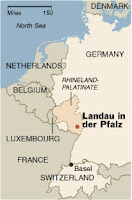The 15th United Nations Climate Change Conference (COP15) is underway at the Bella Centre in Copenhagen running from the 7th to the 18th of December, 2009.
With fierce debate in progress at COP 15, its opportune to reflect that more than half of global carbon pollution comes from developing countries rather than the developed part of the world and hence both segments must contribute in real terms to efforts to mitigate the impact of climate change. Developing countries led by emerging giants China, India and Brazil are the most significant CO2 emitters, and the proportion of carbon pollution from these sources is set to rise as their high-population economies grow.
Not surprisingly, the 42-member Alliance of Small Island States (AOSIS), which includes the vocal island nation of Tuvalu, and the bloc of mainly African Least Developed Countries, have rejected the widely held goal of keeping global temperatures from rising more than 2.0 degrees Celsius stating that this target is manifestly inadequate.
In their estimation only a cap of 1.5 C compared to pre-industrial times would give their nations a chance of fighting off rising seas or crippling drought. The reality is their position is fairly sound and without ambitious targets both with agreement and adherence, the opportunity for averting a major shift in climate will be lost.
Not surprisingly, the 42-member Alliance of Small Island States (AOSIS), which includes the vocal island nation of Tuvalu, and the bloc of mainly African Least Developed Countries, have rejected the widely held goal of keeping global temperatures from rising more than 2.0 degrees Celsius stating that this target is manifestly inadequate.
In their estimation only a cap of 1.5 C compared to pre-industrial times would give their nations a chance of fighting off rising seas or crippling drought. The reality is their position is fairly sound and without ambitious targets both with agreement and adherence, the opportunity for averting a major shift in climate will be lost.







